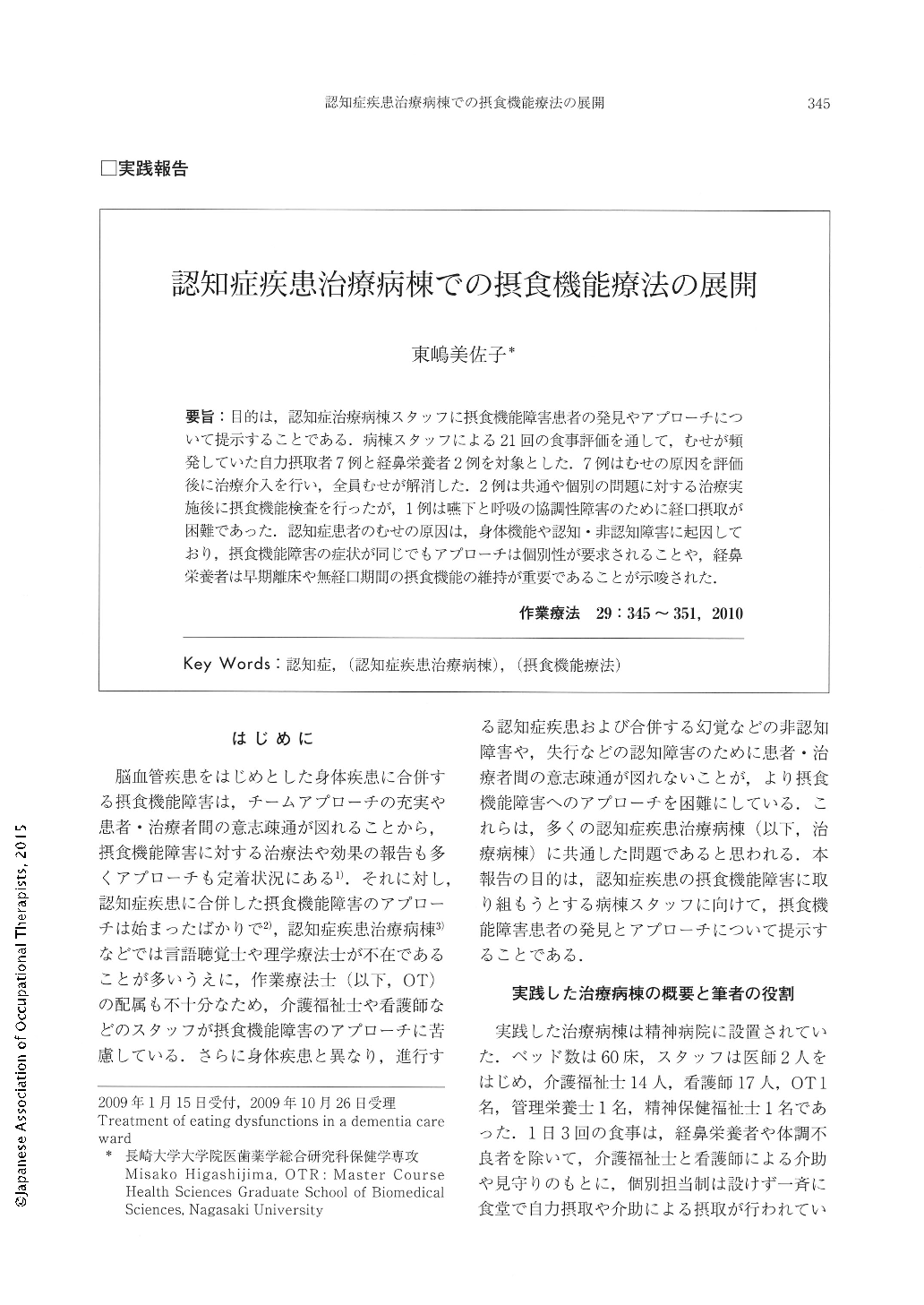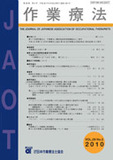Japanese
English
- 販売していません
- Abstract 文献概要
- 1ページ目 Look Inside
- 参考文献 Reference
要旨:目的は,認知症治療病棟スタッフに摂食機能障害患者の発見やアプローチについて提示することである.病棟スタッフによる21回の食事評価を通して,むせが頻発していた自力摂取者7例と経鼻栄養者2例を対象とした.7例はむせの原因を評価後に治療介入を行い,全員むせが解消した.2例は共通や個別の問題に対する治療実施後に摂食機能検査を行ったが,1例は嚥下と呼吸の協調性障害のために経口摂取が困難であった.認知症患者のむせの原因は,身体機能や認知・非認知障害に起因しており,摂食機能障害の症状が同じでもアプローチは個別性が要求されることや,経鼻栄養者は早期離床や無経口期間の摂食機能の維持が重要であることが示唆された.
This report attempts to demonstrate a method for the staff in a dementia ward to identify patients with eating dysfunctions and apply appropriate treatment.
Nine dementia patients were observed 21 times by nurses, qualified caregivers and occupational therapists during meal times. The subjects were seven patients capable of ingesting food without assistance and two patients receiving nasogastric tube feeding.
For the seven patients able to ingest food unassisted, we identified the cause of choking and intervened. Choking was resolved in all seven patients. For the two patients receiving nasogastric tube feeding, treatment was given for common problems such as poor general condition, as well as individual problems such as biting. Following the improvement of common and individual problems, a non-invasive eating function test was conducted to assess whether the patients could proceed to receive food orally. Oral intake proved difficult for one patient due to disorders in deglutition and respiratory cooperation.
Choking was caused by impaired physical function as well as cognitive or non-cognitive disorders, and individualized treatment was required for patients with the same eating dysfunction symptoms. As for patients receiving nasogastric tube feeding, early ambulation and measures for maintaining eating functions during the absence of oral intake were considered important.

Copyright © 2010, Japanese Association of Occupational Therapists. All rights reserved.


